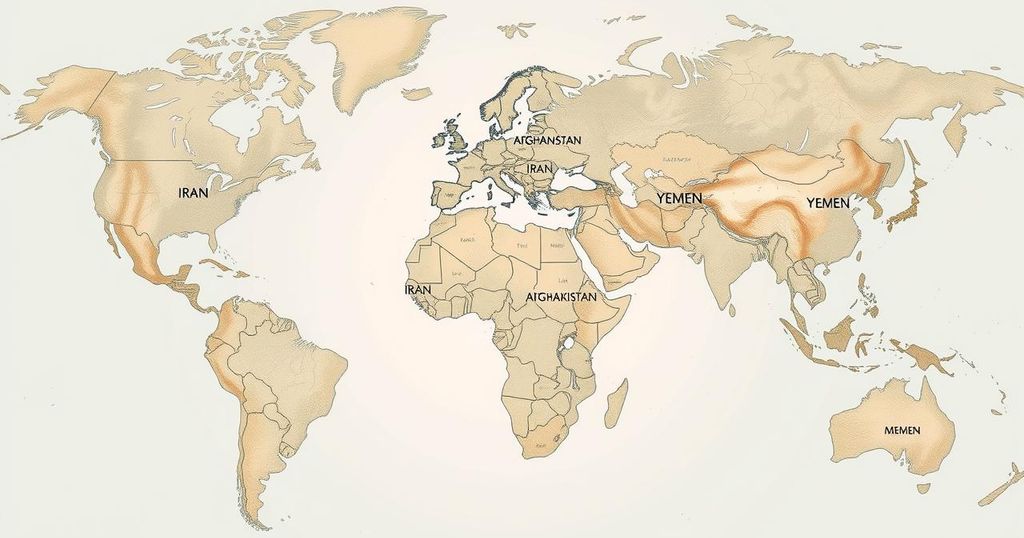The Trump administration is poised to announce new U.S. entry restrictions affecting travelers from Afghanistan, Pakistan, Iran, Libya, Somalia, Sudan, Syria, Yemen, Chad, North Korea, and Venezuela as part of a security review following an Executive Order. Critics have condemned this potential ban, reminiscent of earlier travel restrictions perceived as discriminatory.
The Trump administration is reportedly preparing to impose new U.S. entry restrictions on various countries, potentially impacting visa access for individuals from Afghanistan, Pakistan, Iran, Libya, Somalia, Sudan, Syria, Yemen, Chad, North Korea, and Venezuela. This initiative follows an Executive Order issued January 20, which mandates federal agencies to evaluate the security vetting processes of these nations. New entry requirements are expected to be announced soon, which may include partial or full admissions suspensions.
During the first term of President Trump, a series of travel bans were enacted beginning in 2017, with the first version targeting predominantly Muslim countries. Critics labeled the policy a “Muslim Ban” due to its focus on Muslim-majority nations. Legal challenges followed, but the U.S. Supreme Court ultimately upheld the third iteration of the ban in 2018, affirming the President’s authority in national security enforcement.
The final list of countries potentially affected by the new restrictions is still pending confirmation; however, Afghanistan and Pakistan are reportedly under review. Advocacy groups like the International Refugee Admissions Project have expressed concern regarding the implications for Afghan refugees, especially those holding Special Immigrant Visas fleeing Taliban persecution.
Additionally, Pakistan faces scrutiny due to security issues and perceived inadequacies in its vetting processes. Inclusion in the travel ban could adversely affect numerous Pakistani nationals seeking U.S. entry.
Opposition to the prospective travel ban includes denunciations from civil rights organizations such as the American Civil Liberties Union. Critics argue that it is unnecessary, as the State Department and Department of Homeland Security already implement stringent vetting measures.
The Trump administration aims to finalize the list of countries that may face restrictions within 60 days under the Executive Order’s directives. As the deadline approaches, an official announcement regarding the impacted nations is anticipated shortly. For further updates, one can refer to the official websites of the U.S. Department of State and the Department of Homeland Security.
In summary, the Trump administration’s potential new U.S. entry restrictions could significantly affect individuals from various countries, including Afghanistan and Pakistan. The scrutiny of security procedures is intended to bolster national safety, yet it draws considerable backlash from civil rights advocates and organizations. An official announcement is forthcoming, with implications for thousands of affected individuals awaiting clarity.
Original Source: www.travelandtourworld.com






